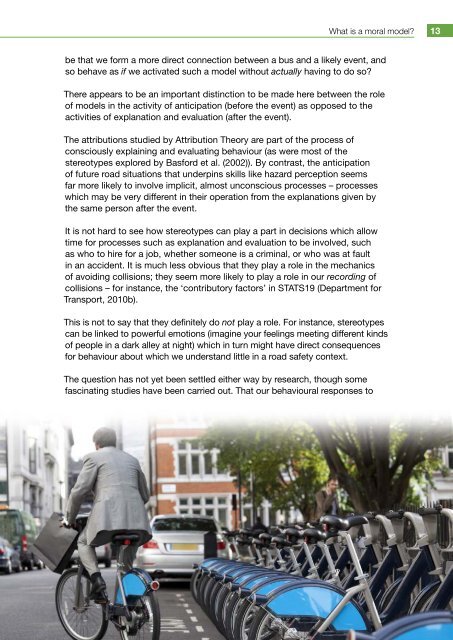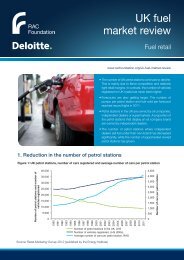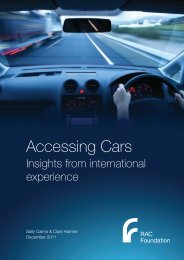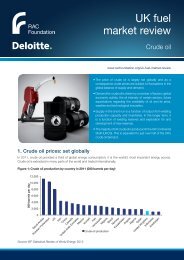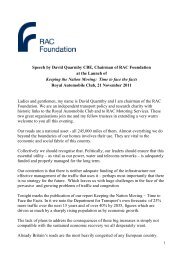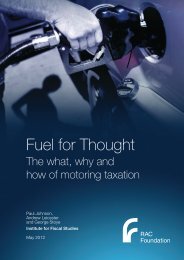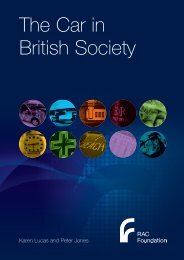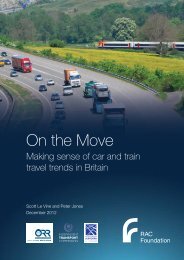Road sharing - does it matter what road users think of each other?
Road sharing - does it matter what road users think of each other?
Road sharing - does it matter what road users think of each other?
Create successful ePaper yourself
Turn your PDF publications into a flip-book with our unique Google optimized e-Paper software.
What is a moral model?13be that we form a more direct connection between a bus and a likely event, andso behave as if we activated such a model w<strong>it</strong>hout actually having to do so?There appears to be an important distinction to be made here between the role<strong>of</strong> models in the activ<strong>it</strong>y <strong>of</strong> anticipation (before the event) as opposed to theactiv<strong>it</strong>ies <strong>of</strong> explanation and evaluation (after the event).The attributions studied by Attribution Theory are part <strong>of</strong> the process <strong>of</strong>consciously explaining and evaluating behaviour (as were most <strong>of</strong> thestereotypes explored by Basford et al. (2002)). By contrast, the anticipation<strong>of</strong> future <strong>road</strong> s<strong>it</strong>uations that underpins skills like hazard perception seemsfar more likely to involve implic<strong>it</strong>, almost unconscious processes – processeswhich may be very different in their operation from the explanations given bythe same person after the event.It is not hard to see how stereotypes can play a part in decisions which allowtime for processes such as explanation and evaluation to be involved, suchas who to hire for a job, whether someone is a criminal, or who was at faultin an accident. It is much less obvious that they play a role in the mechanics<strong>of</strong> avoiding collisions; they seem more likely to play a role in our recording <strong>of</strong>collisions – for instance, the ‘contributory factors’ in STATS19 (Department forTransport, 2010b).This is not to say that they defin<strong>it</strong>ely do not play a role. For instance, stereotypescan be linked to powerful emotions (imagine your feelings meeting different kinds<strong>of</strong> people in a dark alley at night) which in turn might have direct consequencesfor behaviour about which we understand l<strong>it</strong>tle in a <strong>road</strong> safety context.The question has not yet been settled e<strong>it</strong>her way by research, though somefascinating studies have been carried out. That our behavioural responses to


